[Home Theater Network HDAV.com.cn] monitor speakers let you hear the most accurate, no sound-stained sound, able to faithfully present the original appearance of the sound works. For recording, editing, mixing and mastering, the quality of the monitors determines the quality of your work through headphones, car stereos, televisions and more.
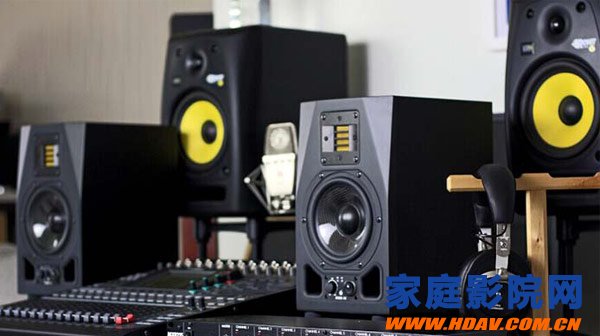
Active/passive
Most of the monitors on the market today are active products, but the understanding of passive speakers is also important. Active speakers are not as good as passive in all respects, so it's important to understand the differences between different products.
The passive monitor is an acoustically constructed cabinet with a cone that requires an additional amplifier and crossover. Its advantage is that the amplifier and the speaker are separated, and you can choose another amplifier product that you think is excellent.
Active monitor speakers have built-in amplifiers, so you don't need to worry about choosing peripherals. At the same time, through the debugging of the manufacturer, the matching degree between the amplifier and the speaker is high, which is conducive to providing excellent sound quality. There are countless professional studios in the world that choose active speakers for monitoring. Unless you have a special hobby and understanding of passive speakers, it is best to choose active speakers, its convenience and sound quality will make you satisfied.
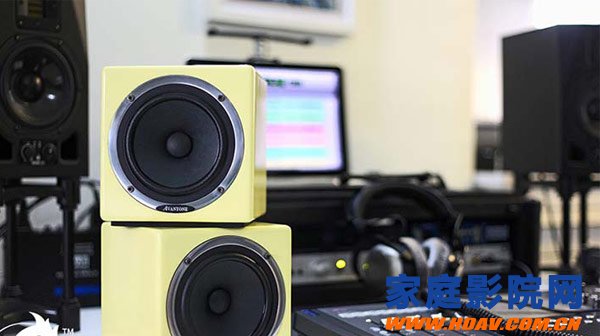
Paper cone material
The materials used in different speakers may vary from paper to Kevlar, even aluminum alloys, and manufacturers continue to innovate. If you are interested, you can find more elements from nature to act as materials. But to be honest, few people have noticed the effect of paper cone material on sound quality.
The material has a great influence on the transmission of sound, but few people pay attention. Unless you have a good understanding of materials science and want to do related research, or pay attention to the sound itself.
Inverted hole
Inverted holes extend the low frequency response of the speakers, and many speakers have inverted holes. The inverted hole box has many benefits but no closed box is accurate. And if you put the rear-mounted inverter speaker close to the wall, the resulting low frequency will be exaggerated. If the room is too small for the speaker to move away from the wall, it is best to pick a front-mounted inverter.
Balance and room correction
Many monitor speakers have different EQ functions built in to better suit the working environment. Some even use digital processing chips to optimize sound performance. These features are useful, but be aware that these features are not a substitute for the physical properties of the room. EQ and room correction DSPs can make the poor acoustic environment sound more comfortable in most cases. But in the end, it is impossible to change the characteristics of the room. The speaker cannot radiate sound waves without passing through the acoustic environment of the room.
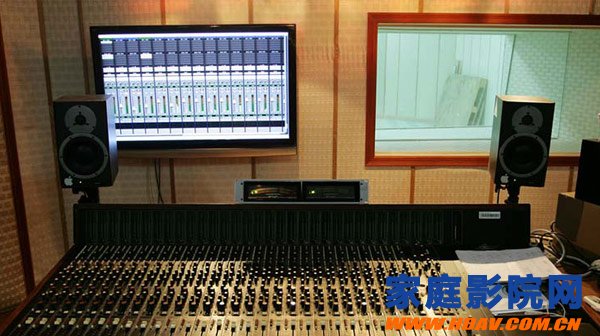
The use of bass
Whether or not the bass is needed depends on the work content. If you mix TV or cartoons, a monitoring system with integrated bass speakers is essential. If you are just recording a demo for the band, a pair of stereo full-range monitors will suffice. Think about what the audience will listen to in their environment. If they are enjoying music in a home theater environment with a powerful subwoofer, they must buy a bass to feel the audience's sense of hearing. If most people only use the Apple iPod or listen in the car, there is no need to buy it.
Placement and isolation
As shown in the figure, it can avoid the sound shadow area. Put a pair of stereo speakers in front, keep the seat and the two speakers form an equilateral triangle. In other words, let them be as long as each other and as long as you are. This placement provides the most accurate frequency response and the clearest stereo image.
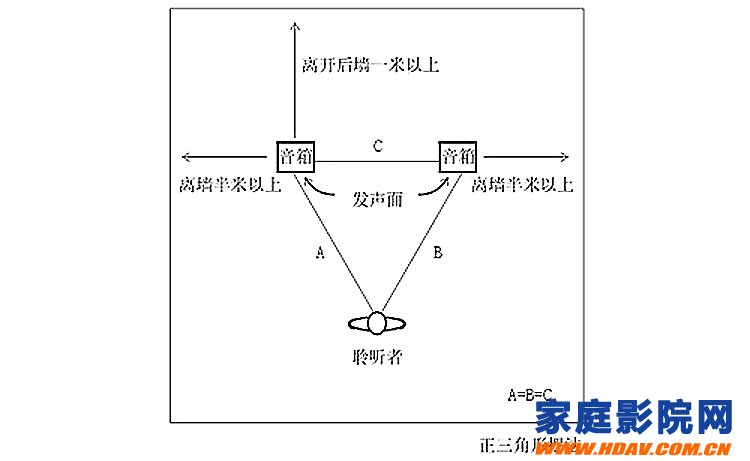
It is generally more advantageous for the sound to be placed on the stand than on the table or on the mixer. Because the fine dressing filter caused by the table top affects the accuracy of sound transmission. In addition, the speakers placed on the table will transfer a part of the energy to the contact surface, resulting in subtle acoustic dyeing. Putting the speaker on the stand can avoid the above problems.
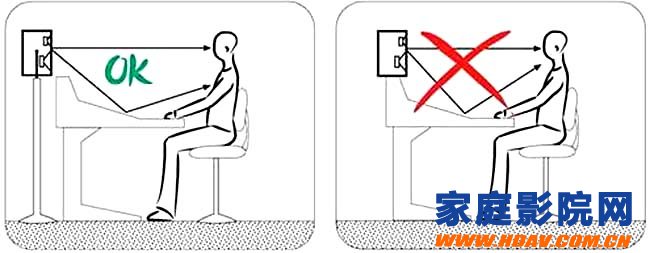
The basic considerations for selecting monitor speakers are discussed above. Next, you need to consider your own needs, this part will play a decisive role. Here are some important points:
size
The size of the speakers should match the size of your room. If the studio is small, choosing a small speaker is more accurate.
sound
Keep in mind that listening to speakers is not to make music better, it is designed to help you restore the most authentic sound, and strive to be precise in detail. A good monitor can reveal all the good and bad details in the mix, while at the same time accurately replaying in the full band.
In fact, it is very difficult to find a monitor that can be perfectly suited to your studio in someone else's studio, because even if you spend a lot of time going to different stores and friends' sheds to listen to various monitors, you can only say Different acoustic environments still play a big role in mixing. You can only notice certain characteristics of the speaker, but don't expect to get exactly the same sound in your own studio.
Acoustic decoration
If you pay attention to monitoring, you should also care about the acoustic environment of the room. It is recommended that beginners put more materials that absorb sound energy on the walls of the house. These materials are not expensive, but they can reduce room reflection and let you hear more speakers. More fresh and fun home theater information, please pay attention to home theater network http:// (WeChat: cnhifi), the country's most influential home theater audio player interactive media website.
Shaoxing Tianlong Tin Materials Co.,Ltd. , https://www.tianlongspray.com